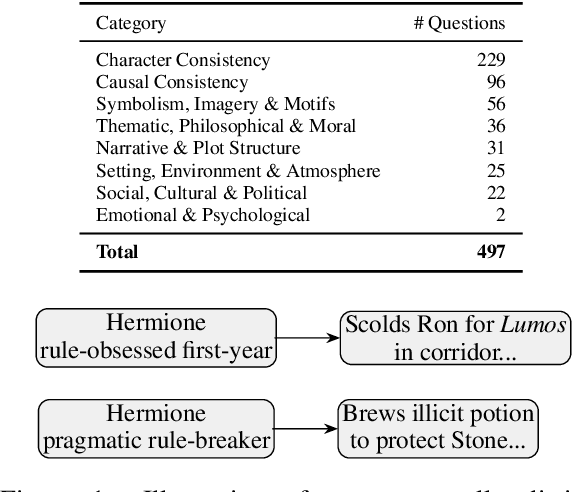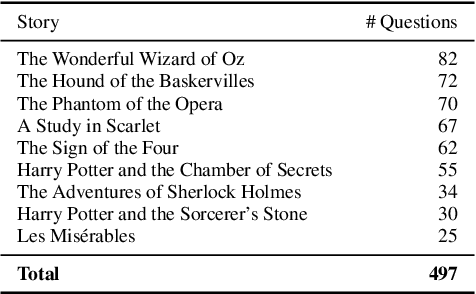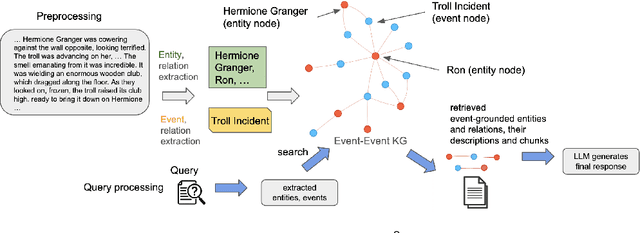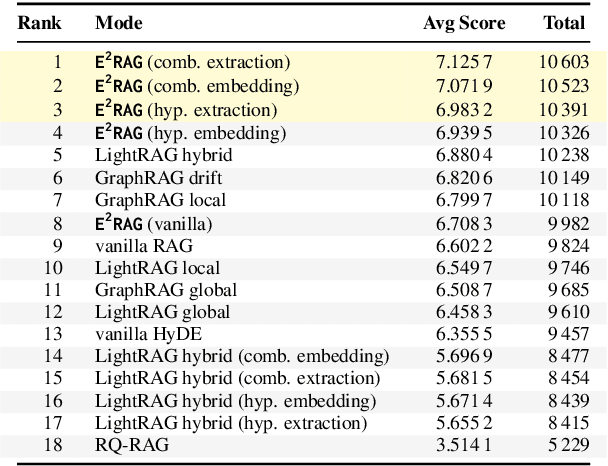Bryan Kian Hsiang Low
The Chicken and Egg Dilemma: Co-optimizing Data and Model Configurations for LLMs
Feb 09, 2026Abstract:Co-optimizing data and model configurations for training LLMs presents a classic chicken-and-egg dilemma: The best training data configuration (e.g., data mixture) for a downstream task depends on the chosen model configuration (e.g., model architecture), and vice versa. However, jointly optimizing both data and model configurations is often deemed intractable, and existing methods focus on either data or model optimization without considering their interaction. We introduce JoBS, an approach that uses a scaling-law-inspired performance predictor to aid Bayesian optimization (BO) in jointly optimizing LLM training data and model configurations efficiently. JoBS allocates a portion of the optimization budget to learn an LLM performance predictor that predicts how promising a training configuration is from a small number of training steps. The remaining budget is used to perform BO entirely with the predictor, effectively amortizing the cost of running full-training runs. We study JoBS's average regret and devise the optimal budget allocation to minimize regret. JoBS outperforms existing multi-fidelity BO baselines, as well as data and model optimization approaches across diverse LLM tasks under the same optimization budget.
Diffusion-Inspired Reconfiguration of Transformers for Uncertainty Calibration
Feb 09, 2026Abstract:Uncertainty calibration in pre-trained transformers is critical for their reliable deployment in risk-sensitive applications. Yet, most existing pre-trained transformers do not have a principled mechanism for uncertainty propagation through their feature transformation stack. In this work, we propose a diffusion-inspired reconfiguration of transformers in which each feature transformation block is modeled as a probabilistic mapping. Composing these probabilistic mappings reveals a probability path that mimics the structure of a diffusion process, transporting data mass from the input distribution to the pre-trained feature distribution. This probability path can then be recompiled on a diffusion process with a unified transition model to enable principled propagation of representation uncertainty throughout the pre-trained model's architecture while maintaining its original predictive performance. Empirical results across a variety of vision and language benchmarks demonstrate that our method achieves superior calibration and predictive accuracy compared to existing uncertainty-aware transformers.
Uncovering Scaling Laws for Large Language Models via Inverse Problems
Sep 09, 2025Abstract:Large Language Models (LLMs) are large-scale pretrained models that have achieved remarkable success across diverse domains. These successes have been driven by unprecedented complexity and scale in both data and computations. However, due to the high costs of training such models, brute-force trial-and-error approaches to improve LLMs are not feasible. Inspired by the success of inverse problems in uncovering fundamental scientific laws, this position paper advocates that inverse problems can also efficiently uncover scaling laws that guide the building of LLMs to achieve the desirable performance with significantly better cost-effectiveness.
Respecting Temporal-Causal Consistency: Entity-Event Knowledge Graphs for Retrieval-Augmented Generation
Jun 06, 2025



Abstract:Retrieval-augmented generation (RAG) based on large language models often falters on narrative documents with inherent temporal structures. Standard unstructured RAG methods rely solely on embedding-similarity matching and lack any general mechanism to encode or exploit chronological information, while knowledge graph RAG (KG-RAG) frameworks collapse every mention of an entity into a single node, erasing the evolving context that drives many queries. To formalize this challenge and draw the community's attention, we construct ChronoQA, a robust and discriminative QA benchmark that measures temporal, causal, and character consistency understanding in narrative documents (e.g., novels) under the RAG setting. We then introduce Entity-Event RAG (E^2RAG), a dual-graph framework that keeps separate entity and event subgraphs linked by a bipartite mapping, thereby preserving the temporal and causal facets needed for fine-grained reasoning. Across ChronoQA, our approach outperforms state-of-the-art unstructured and KG-based RAG baselines, with notable gains on causal and character consistency queries. E^2RAG therefore offers a practical path to more context-aware retrieval for tasks that require precise answers grounded in chronological information.
COBRA: Contextual Bandit Algorithm for Ensuring Truthful Strategic Agents
May 29, 2025Abstract:This paper considers a contextual bandit problem involving multiple agents, where a learner sequentially observes the contexts and the agent's reported arms, and then selects the arm that maximizes the system's overall reward. Existing work in contextual bandits assumes that agents truthfully report their arms, which is unrealistic in many real-life applications. For instance, consider an online platform with multiple sellers; some sellers may misrepresent product quality to gain an advantage, such as having the platform preferentially recommend their products to online users. To address this challenge, we propose an algorithm, COBRA, for contextual bandit problems involving strategic agents that disincentivize their strategic behavior without using any monetary incentives, while having incentive compatibility and a sub-linear regret guarantee. Our experimental results also validate the different performance aspects of our proposed algorithm.
ActiveDPO: Active Direct Preference Optimization for Sample-Efficient Alignment
May 25, 2025Abstract:The recent success of using human preferences to align large language models (LLMs) has significantly improved their performance in various downstream tasks like question answering, mathematical reasoning, and code generation. However,3 achieving effective LLM alignment depends on high-quality human preference datasets. Collecting these datasets requires human preference annotation, which is costly and resource-intensive, necessitating efficient active data selection methods. Existing methods either lack a strong theoretical foundation or depend on restrictive reward function assumptions (e.g., linearity). To this end, we propose an algorithm, ActiveDPO, that uses a theoretically grounded data selection criterion for non-linear reward functions while directly leveraging the LLM itself to parameterize the reward model that is used for active data selection. As a result, ActiveDPO explicitly accounts for the influence of LLM on data selection, unlike methods that select the data without considering the LLM that is being aligned, thereby leading to more effective and efficient data collection. Extensive experiments show that ActiveDPO outperforms existing methods across various models and datasets.
WaterDrum: Watermarking for Data-centric Unlearning Metric
May 08, 2025Abstract:Large language model (LLM) unlearning is critical in real-world applications where it is necessary to efficiently remove the influence of private, copyrighted, or harmful data from some users. However, existing utility-centric unlearning metrics (based on model utility) may fail to accurately evaluate the extent of unlearning in realistic settings such as when (a) the forget and retain set have semantically similar content, (b) retraining the model from scratch on the retain set is impractical, and/or (c) the model owner can improve the unlearning metric without directly performing unlearning on the LLM. This paper presents the first data-centric unlearning metric for LLMs called WaterDrum that exploits robust text watermarking for overcoming these limitations. We also introduce new benchmark datasets for LLM unlearning that contain varying levels of similar data points and can be used to rigorously evaluate unlearning algorithms using WaterDrum. Our code is available at https://github.com/lululu008/WaterDrum and our new benchmark datasets are released at https://huggingface.co/datasets/Glow-AI/WaterDrum-Ax.
ReasonIR: Training Retrievers for Reasoning Tasks
Apr 29, 2025Abstract:We present ReasonIR-8B, the first retriever specifically trained for general reasoning tasks. Existing retrievers have shown limited gains on reasoning tasks, in part because existing training datasets focus on short factual queries tied to documents that straightforwardly answer them. We develop a synthetic data generation pipeline that, for each document, our pipeline creates a challenging and relevant query, along with a plausibly related but ultimately unhelpful hard negative. By training on a mixture of our synthetic data and existing public data, ReasonIR-8B achieves a new state-of-the-art of 29.9 nDCG@10 without reranker and 36.9 nDCG@10 with reranker on BRIGHT, a widely-used reasoning-intensive information retrieval (IR) benchmark. When applied to RAG tasks, ReasonIR-8B improves MMLU and GPQA performance by 6.4% and 22.6% respectively, relative to the closed-book baseline, outperforming other retrievers and search engines. In addition, ReasonIR-8B uses test-time compute more effectively: on BRIGHT, its performance consistently increases with longer and more information-rich rewritten queries; it continues to outperform other retrievers when combined with an LLM reranker. Our training recipe is general and can be easily extended to future LLMs; to this end, we open-source our code, data, and model.
Active Human Feedback Collection via Neural Contextual Dueling Bandits
Apr 16, 2025Abstract:Collecting human preference feedback is often expensive, leading recent works to develop principled algorithms to select them more efficiently. However, these works assume that the underlying reward function is linear, an assumption that does not hold in many real-life applications, such as online recommendation and LLM alignment. To address this limitation, we propose Neural-ADB, an algorithm based on the neural contextual dueling bandit framework that provides a principled and practical method for collecting human preference feedback when the underlying latent reward function is non-linear. We theoretically show that when preference feedback follows the Bradley-Terry-Luce model, the worst sub-optimality gap of the policy learned by Neural-ADB decreases at a sub-linear rate as the preference dataset increases. Our experimental results on problem instances derived from synthetic preference datasets further validate the effectiveness of Neural-ADB.
Broaden your SCOPE! Efficient Multi-turn Conversation Planning for LLMs using Semantic Space
Mar 14, 2025Abstract:Large language models (LLMs) are used in chatbots or AI assistants to hold conversations with a human user. In such applications, the quality (e.g., user engagement, safety) of a conversation is important and can only be exactly known at the end of the conversation. To maximize its expected quality, conversation planning reasons about the stochastic transitions within a conversation to select the optimal LLM response at each turn. Existing simulation-based conversation planning algorithms typically select the optimal response by simulating future conversations with a large number of LLM queries at every turn. However, this process is extremely time-consuming and hence impractical for real-time conversations. This paper presents a novel approach called Semantic space COnversation Planning with improved Efficiency (SCOPE) that exploits the dense semantic representation of conversations to perform conversation planning efficiently. In particular, SCOPE models the stochastic transitions in conversation semantics and their associated rewards to plan entirely within the semantic space. This allows us to select the optimal LLM response at every conversation turn without needing additional LLM queries for simulation. As a result, SCOPE can perform conversation planning 70 times faster than conventional simulation-based planning algorithms when applied to a wide variety of conversation starters and two reward functions seen in the real world, yet achieving a higher reward within a practical planning budget. Our code can be found at: https://github.com/chenzhiliang94/convo-plan-SCOPE.
 Add to Chrome
Add to Chrome Add to Firefox
Add to Firefox Add to Edge
Add to Edge